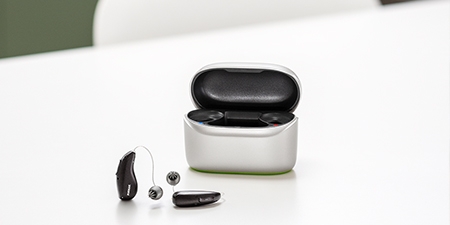Explore Medications That Can Cause Ringing in the Ears

Explore Medications That Can Cause Ringing in the Ears
10 min
Published September 11, 2024
Medications That Can Cause Ringing in the Ears
Did you know certain medications can cause ringing in the ears, also known as tinnitus? Many people aren't aware that their medication may be behind those persistent sounds. This blog will highlight some common prescriptions and over-the-counter drugs that may lead to this condition. Understanding these medications can help you make informed choices and communicate better with your healthcare provider.
Different medicines, from antibiotics to anti-inflammatory drugs, come with various side effects. Tinnitus is one that often flies under the radar. In this article, we will explore specific medications known to cause ringing in the ears and offer helpful tips for Tinnitus treatment.
What is Tinnitus?
Tinnitus is the perception of sound not caused by an external source. It can manifest as ringing, buzzing, humming, or hissing in one or both ears. This condition affects millions of people globally and can impact daily life by causing discomfort, difficulty sleeping, and trouble concentrating.
While tinnitus itself may not be a serious concern, it can be a symptom of an underlying health condition. If you experience persistent ringing in the ears, consult an audiologist or your healthcare provider to rule out any potential causes that may require Tinnitus treatment.
A Look at Medicines That Can Lead to Tinnitus
Various medications have been identified as potential culprits behind persistent ringing or buzzing in ears. Here's what you need to know about these ototoxic (ear-harming) medications and how they might impact your hearing health.
Always consult with your doctor before making any changes to your medication regimen. Adjustments in dosage or switching to alternative treatments are options to discuss for managing your symptoms.
Strong Antibiotics
Aminoglycosides, such as gentamicin (Gentafair) and tobramycin (Tobrex), are potent antibiotics used for severe bacterial infections. These drugs can cause tinnitus and even lead to permanent hearing loss, especially when taken in high doses. Monitoring dosage and duration is crucial when using these medications.
Blood Pressure Medication
Certain diuretics and beta-blockers prescribed for hypertension can trigger tinnitus-like symptoms. Diuretics, often ending in “-il,” such as lisinopril (Zestril), enalapril (Vasotec), and ramipril (Altace), are known for this side effect. Beta-blockers like bisoprolol (Zebeta) and nebivolol (Bystolic) can also contribute to ringing in the ears.
Aspirin and NSAIDs
Nonsteroidal anti-inflammatory drugs (NSAIDs) like aspirin, ibuprofen (Motrin, Advil), and naproxen (Aleve) can cause tinnitus when taken in high doses. The ringing typically subsides once the medication is discontinued. However, long-term use should be monitored to avoid persistent symptoms.
Anxiety Medication
Benzodiazepines used for anxiety, such as alprazolam (Xanax), diazepam (Valium), lorazepam (Ativan), and clonazepam (Klonopin), may cause tinnitus as a withdrawal symptom. Gradual tapering under medical supervision can help alleviate these effects.
Antidepressants
Selective serotonin reuptake inhibitors (SSRIs) and tricyclic antidepressants (TCAs) can lead to tinnitus. TCAs like amitriptyline (Elavil) and nortriptyline (Pamelor) are known for this, as are SSRIs like fluoxetine (Prozac), sertraline hydrochloride (Zoloft), and escitalopram (Lexapro). Patients should discuss potential side effects with their doctor.
Acne Medication
Isotretinoin (Accutane) and other oral acne medications can cause tinnitus. Symptoms usually disappear after discontinuing use. Exploring topical treatments or hormonal therapies could provide a safer alternative without the risk of tinnitus.
Anticonvulsants
Medications for seizure control, such as lamotrigine (Lamictal), sodium valproate (Depakote), and carbamazepine (Tegretol), may induce tinnitus. Monitoring by a healthcare professional can identify whether these drugs are the cause.
Cancer Medications
Chemotherapy drugs like cisplatin (Platinol) and methotrexate (Otrexup) have been linked to tinnitus. These medications are essential for cancer treatment, so any side effects should be managed in consultation with an oncologist.
Hydroxychloroquine
Hydroxychloroquine (Plaquenil), used for autoimmune diseases and malaria, has been noted to cause tinnitus. More recently, it has been used off-label for COVID-19, heightening awareness of this side effect. Regular hearing check-ups can help in early detection and management.
Treating Tinnitus
Various treatments are available to manage tinnitus effectively. Changing your medication might alleviate your symptoms, but this isn’t always the case, as there could be other underlying causes. Sound therapy, cognitive behavioral therapy (CBT), and hearing aids specifically designed for tinnitus treatment are excellent options to explore.
At AudioNova, we offer comprehensive AudioCare tailored to your needs. Scheduling a free hearing test and consultation with our experts can provide clarity and direction. With the right approach, relief from persistent tinnitus is attainable.




